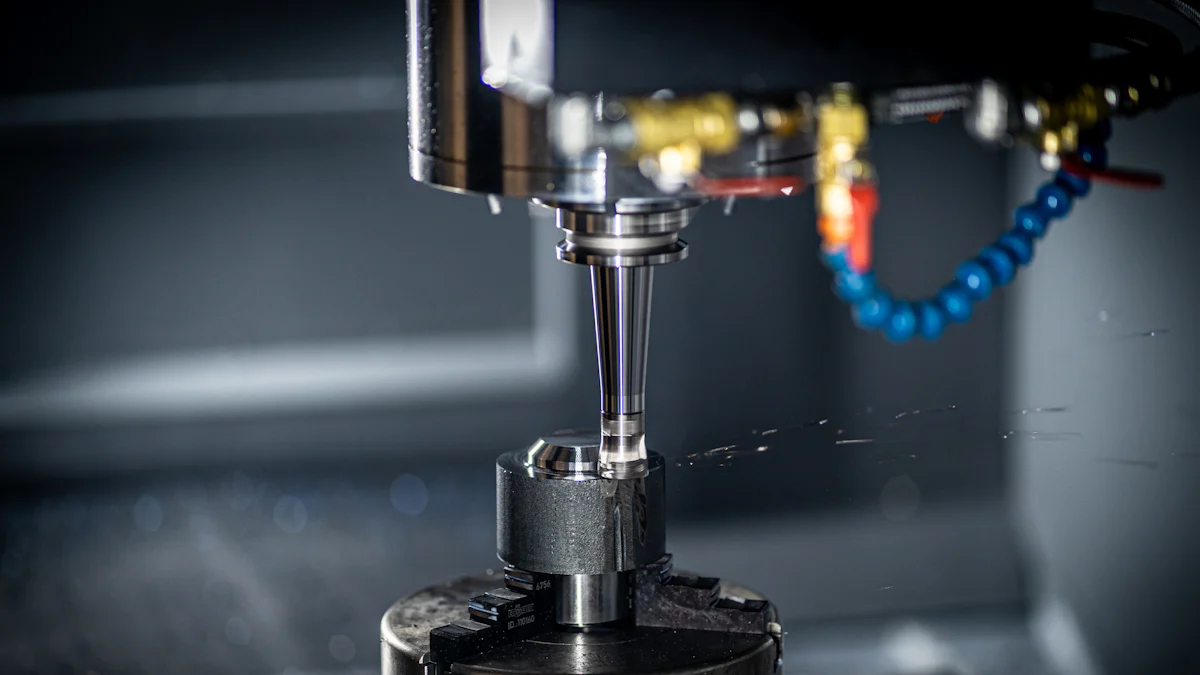Distinguishing Precision Machining from General CNC: A Comprehensive Guide

Understanding CNC
CNC, which stands for Computer Numerical Control, is a manufacturing process that utilizes computer-controlled systems to automate machine tools. This advanced technology enables precision engineering and high precision machining by guiding the machinery in producing intricate components with accuracy. CNC processes are integral in various industries, including aerospace, automotive, and electronics, due to their ability to consistently deliver complex parts with tight tolerances. The utilization of CNC machining ensures efficiency and reliability in the production of critical components.
Precision Machining Overview
Definition of Precision Machining
Precision machining, also known as high precision manufacturing, is the process of fabricating intricate components with exceptional accuracy and meticulous attention to detail. This method involves the use of advanced machinery guided by computer-aided design (CAD) models to achieve tight tolerances in the production of parts. The emphasis on precision engineering ensures that the manufactured components meet exact specifications and quality standards, making precision machining indispensable in various industries.
Applications of Precision Machining
The applications of precision machining span across critical sectors such as aerospace, medical, and electronics. In the aerospace industry, precision machining is crucial for producing complex and high-performance aircraft components that demand absolute accuracy. Similarly, in the medical field, it is utilized to manufacture intricate surgical instruments and medical devices with precise dimensions. Furthermore, in the electronics industry, precision machining plays a vital role in creating intricate parts for electronic devices and circuitry.
General CNC Overview
Understanding General CNC
General CNC machining, a subset of CNC technology, leverages computer controls to automate the production of diverse components. It operates by interpreting CAD models and executing precise tool movements to shape raw materials into finished parts. This method ensures efficiency and consistency in manufacturing processes, allowing for the creation of intricate components with minimal human intervention. General CNC machining is widely adopted across industries due to its ability to produce complex shapes and designs while maintaining high levels of accuracy.
Advantages of General CNC
The utilization of general CNC machining offers several advantages in modern manufacturing. It enables the production of complex shapes and designs that may be challenging or impossible to achieve through traditional manual methods. Additionally, it significantly reduces production time by streamlining the fabrication process, ultimately enhancing overall productivity. The automated nature of general CNC machining also minimizes errors and material waste, contributing to cost-effectiveness and resource optimization.
Key Differences in Machining
Tolerances and Precision
When comparing CNC machining with precision machining, one of the key distinctions lies in the tolerances and precision requirements. Precision machining demands exceptionally tight tolerances, often reaching down to micrometer levels. This level of precision is crucial for creating intricate components with utmost accuracy. On the other hand, general CNC machining allows for broader tolerances, making it suitable for producing less intricate components that do not require extremely precise measurements.
In high precision manufacturing, the emphasis on achieving tight tolerances ensures that the fabricated parts meet exact specifications and quality standards. This meticulous approach is essential for critical industries such as aerospace and medical sectors, where precision engineering plays a pivotal role in ensuring the reliability and performance of the manufactured components.
In contrast, general CNC machining's ability to accommodate broader tolerances makes it suitable for applications where extreme precision is not a primary requirement. This distinction highlights how each method caters to different manufacturing needs based on the intricacy and precision demands of the components being produced.
Complexity of Components
Another significant difference between precision machining and general CNC machining lies in their suitability for handling complex components. Precision machining is ideal for fabricating complex and critical parts that feature intricate designs and detailed specifications. The advanced machinery used in precision engineering processes enables the creation of highly sophisticated components with exceptional accuracy.
On the other hand, general CNC machining is well-suited for simpler and less critical components that do not necessitate highly intricate designs or extremely tight tolerances. Its automated nature allows for efficient production of a wide range of components while maintaining a consistent level of accuracy.
These distinctions emphasize how precision machining and general CNC machining cater to different manufacturing requirements based on the complexity and criticality of the components involved.
CNC Summary
In conclusion, distinguishing between precision machining and general CNC is pivotal for making informed decisions in manufacturing processes. Understanding the unique characteristics and applications of each method enables manufacturers to select the most suitable approach based on the specific requirements of their components. While precision machining excels in fabricating intricate and critical parts with exceptional accuracy, general CNC machining offers efficiency and versatility in producing a wide range of components. By recognizing these distinctions, manufacturers can optimize their production processes and achieve the desired levels of precision and productivity.
See Also
Exploring Precision Engineering: A Comprehensive CNC Machining Overview
Uncovering Precision Engineering: A Thorough Exploration of CNC Milling
Becoming a CNC Machining Expert: Precision Parts Manufacturing Mastery
CNC Turning for Beginners: Demystifying Precision Machining
Progress in Precision Engineering: Exploring the World of CNC Machining
About US
Follow Us
Your prototype holds unparalleled significance, and we deeply value its uniqueness. Collaborating with you during the preparation phase for running your prototype or parts is a commitment we gladly embrace. Whether it's a single part or a complex assembly, we are dedicated to selecting the optimal tools and pathways to bring your envisioned product to life.
At Precision Fab CNC Machining, we specialize in producing parts for prototypes, short runs, and high-volume production. Our prototyping machine capabilities extend across metal, plastic, and wood machining, with welding fabrication services available to complement and finalize your prototype if required.
Address
Address: Room320 10F, Building A,Nanshan international building, Dayawan District, Huizhou, Guangdong, 516001 China
Contacts
billy@timaycnc.com

